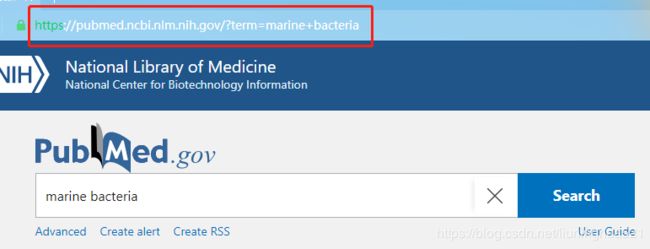- Python返回函数完全指南:从基础到高级应用
Python_trys
python数据库开发语言Python教程Python技巧Python入门Python基础
包含编程籽料、学习路线图、爬虫代码、安装包等!【点击领取】前言在Python编程中,函数不仅可以执行操作,还可以作为返回值,这种特性为编程带来了极大的灵活性和强大的表达能力。本文将全面介绍Python中的返回函数,从基础概念到高级应用场景,帮助开发者掌握这一重要特性。一、返回函数的基本概念1.1什么是返回函数?返回函数指的是一个函数可以返回另一个函数作为其结果。在Python中,函数是一等对象,可
- Python爬虫实战:从新浪财经爬取股票新闻的完整实现
Python爬虫项目
python爬虫开发语言数据分析php
第一部分:爬虫概述1.1什么是爬虫?爬虫是指通过程序模拟浏览器的行为,自动化地抓取网络上的数据。通过爬虫技术,能够从各种网站上提取信息,广泛应用于数据采集、数据分析、机器学习等领域。1.2新浪财经简介新浪财经是中国最大的财经信息平台之一,提供股票、基金、债券、外汇等多方面的财经新闻和数据。在股票领域,新浪财经提供了大量的股票行情、实时数据、新闻报道等信息,因此爬取新浪财经的股票新闻对于投资分析和决
- python爬虫从入门到精通
大模型猫叔
python爬虫数据库
目录一、正确认识Python爬虫二、了解爬虫的本质1.熟悉Python编程2.了解HTML3.了解网络爬虫的基本原理4.学习使用Python爬虫库三、了解非结构化数据的存储1.本地文件2.数据库四、掌握各种技巧,应对特殊网站的反爬措施1.User-Agent2.Cookies3.IP代理五、学习爬虫框架,搭建工程化的爬虫1.创建Scrapy项目2.创建Spider3.编写Spider4.运行Spi
- python爬虫入门(小白五分钟从入门到精通)
一百天成为python专家
python爬虫开发语言网络爬虫python3.11ipython
网络爬虫的介绍本节主要介绍Pytbon语言中支持网络爬虫的库,此外还将介绍如何获取网站的爬取规则,读者在学习和践过程中一定要严格遵守网站提供的爬取规则。网络爬虫网络爬虫通俗来讲就是使用代码将HTML网页的内容下载到本地的过程。爬取网页主要是为了获取网中的关键信息,例如网页中的数据、图片、视频等。Python语言中提供了多个具有爬虫功能的库,下面将具urHIib库:是Python自带的标准库,无须下
- Python批量爬取谷歌原图,2021年最新可用版
文章目录前言一、环境配置1.安装selenium2.使用正确的谷歌浏览器驱动二、使用步骤1.加载chromedriver.exe2.设置是否开启可视化界面3.输入关键词、下载图片数、图片保存路径三、爬取效果四、完整代码前言作为一名CVer,数据集获取少不了用到数据、图片爬虫技术,谷歌作为全球最大的数据搜索网站,如何从中快速获取大量有用图片数据尤为重要,但是技术更新,很多代码大多就会失效,爬与反爬永
- Python爬虫实战:批量下载小红书笔记图片的全流程技术解析
Python爬虫项目
2025年爬虫实战项目python爬虫笔记开发语言音视频github
1.引言:为什么要爬取小红书笔记图片小红书作为新兴的生活方式分享平台,聚集了大量高质量原创笔记内容,涵盖时尚、美妆、旅游、美食等多领域。笔记中的图片往往是内容的核心,批量下载小红书笔记图片,有助于:内容归档与备份数据分析与用户行为研究图像识别与机器学习训练电商推广及内容再加工但小红书对内容保护做得较好,爬取难度较高,需要结合多技术手段突破。2.小红书平台特点与爬取难点动态加载与API接口多变:页面
- 基于Python的Google Patents专利数据爬取实战:从入门到精通
Python爬虫项目
2025年爬虫实战项目python开发语言爬虫scrapyselenium
摘要本文将详细介绍如何使用Python构建一个高效的GooglePatents专利爬虫,涵盖最新技术如Playwright浏览器自动化、异步请求处理、反反爬策略等。文章包含完整的代码实现、性能优化技巧以及数据处理方法,帮助读者全面掌握专利数据采集技术。1.引言在当今知识经济时代,专利数据已成为企业技术研发、市场竞争分析的重要资源。GooglePatents作为全球最大的专利数据库之一,收录了来自全
- Python爬虫【二十四章】分布式爬虫架构实战:Scrapy-Redis亿级数据抓取方案设计
程序员_CLUB
Python入门到进阶python爬虫分布式
目录一、背景:单机爬虫的五大瓶颈二、Scrapy-Redis架构深度解析1.架构拓扑图2.核心组件对比三、环境搭建与核心配置1.基础环境部署2.Scrapy项目配置四、分布式爬虫核心实现1.改造原生Spider2.布隆过滤器集成五、五大性能优化策略1.动态优先级调整2.智能限速策略3.连接池优化4.数据分片存储5.心跳监控系统六、实战:新闻聚合平台数据抓取1.集群架构2.性能指标七、总结1.核心收
- 分布式爬虫:设计一个分布式爬虫架构来抓取大规模数据
Python爬虫项目
2025年爬虫实战项目分布式爬虫架构开发语言redis测试工具python
✨引言随着互联网信息的爆炸式增长,单机爬虫面对大规模网站数据抓取显得力不从心。特别是爬取新闻、商品、社交平台等网站时,经常遇到响应慢、IP被封等问题。为了解决这些问题,分布式爬虫系统应运而生。在本文中,我们将手把手带你打造一个基于Scrapy+Redis+Celery+FastAPI+Docker的现代分布式爬虫架构,实现任务调度、去重控制、分布式抓取与结果存储。本文代码均基于Python3.10
- Python医疗大数据实战:基于Scrapy-Redis的医院评价数据分布式爬虫设计与实现
Python爬虫项目
python开发语言爬虫seleniumscrapy
摘要本文将详细介绍如何使用Python构建一个高效的医院评价数据爬虫系统。我们将从爬虫基础讲起,逐步深入到分布式爬虫架构设计,使用Scrapy框架结合Redis实现分布式爬取,并采用最新的反反爬技术确保数据采集的稳定性。文章包含完整的代码实现、性能优化方案以及数据处理方法,帮助读者掌握医疗大数据采集的核心技术。关键词:Python爬虫、Scrapy-Redis、分布式爬虫、医疗大数据、反反爬技术1
- 分布式爬虫架构:Scrapy-Redis+Redis集群实现百万级数据采集
傻啦嘿哟
分布式爬虫架构
目录当单机爬虫遇到百万数据量架构设计核心原理分布式任务调度弹性去重机制Redis集群部署实践集群规模计算高可用配置Scrapy项目改造分布式爬虫编写百万级数据优化策略流量控制机制动态IP代理数据存储优化实战案例分析监控与维护集群健康检查日志分析架构演进方向当单机爬虫遇到百万数据量想象你正在搭建一个电商价格监控系统,需要每天抓取十万条商品数据。使用传统Scrapy框架时,单台服务器每天最多只能处理3
- python爬虫之获取渲染代码
获取渲染后的网页代码过get()方法获取浏览器中的网页资源后,浏览器将自动渲染网页源代码内容,并生成渲染后的的时使用page_source()方法即可获取渲染后的网页代码。示例代码:'''获取渲染后的网页代码'''fromseleniumimportwebdriverfromselenium.webdriver.chrome.optionsimportOptionschrome_options=O
- 爬虫实战案例(两个)
AI 嗯啦
爬虫
该博客展示两个简单的爬虫实战案例,一个是从人民邮电出版社上爬取其中一个分类的全部图书信息,另一个是在苏宁易购上爬取某个商品的好评和差评,用两个简单的案例讲解爬虫在实际情况下的运作流程一、获取图书信息需求:统计人民邯电出版社官网中与关键词“python”有关的全部图书,包含图书名、价格、作者名等信息,并将获取的信息写入“Excel图书汇总,txt”文件中。流程:配置浏览器并打开目标网站搜索"Pyth
- 网络爬虫——python爬取豆瓣评论
SSeaflower
爬虫python开发语言
网络爬虫——python爬取豆瓣评论一、网络爬虫概述1.1网络爬虫定义网络爬虫,又被称为网络蜘蛛(WebSpider)、网络机器人等。它根据网页地址(URL)爬取网页内容,网页地址(URL)就是我们在浏览器中输入的网站链接。例如:https://www.baidu.com;https://movie.douban.com/。网络爬虫不仅能够复制网页信息和下载音视频,还可以做到网站的模拟登录和行为链
- 标题 “Python 网络爬虫 —— selenium库驱动浏览器
WeiJingYu.
python爬虫selenium
一、Selenium库核心认知Selenium库是Web应用程序测试与自动化操作的利器,能驱动浏览器(如Edge、Firefox等)执行点击、输入、打开、验证等操作。与Requests库差异显著:Requests库仅能获取网页原始代码,而Selenium基于浏览器驱动程序工作,浏览器可渲染网页源代码,借此能轻松拿到渲染后的数据信息(如JS动态加载内容),完美解决Requests库无法处理的动态页面
- Python网络爬虫实现selenium对百度识图二次开发以及批量保存Excel
WeiJingYu.
python爬虫selenium
一.百度识图自动上传图片fromseleniumimportwebdriverfromselenium.webdriver.edge.optionsimportOptionsfromselenium.webdriver.common.byimportByedge_options=Options()edge_options.binary_location=r"C:\ProgramFiles(x86)
- Python 网络爬虫 —— 代理服务器
WeiJingYu.
爬虫服务器前端
一、会话(Session)(一)核心逻辑HTTP本身无记忆,每次请求独立。会话(Session)就是为解决这问题,让客户端(浏览器)和服务器“记住”交互状态(比如登录态),常用Cookie实现:服务器发Cookie给客户端存着,下次请求带着,服务器就知道“是同一用户”。(二)创建会话(requests实现)用requests库的Session类,自动维持会话、管理Cookie,代码形式:impor
- python爬虫技术——基础知识、实战
南瓜AI
python爬虫scrapy
参考文献:Python爬虫入门(一)(适合初学者)-CSDN博客一、常用爬虫工具包Scrapy语言:Python特点:高效、灵活的爬虫框架,适合大型爬虫项目。BeautifulSoup语言:Python特点:用于解析HTML和XML,简单易用。Selenium语言:Python/Java/C#特点:支持浏览器自动化,适合处理JavaScript渲染的网页。Requests语言:Python特点:简
- 分享两个爬虫练习网站
高质量海王哦
爬虫爬虫python
Python爬虫案例|ScrapeCenterSpiderbuf|Python爬虫练习靶场
- Python爬虫实战:研究psd-tools库相关技术
ylfhpy
爬虫项目实战python爬虫开发语言psd-tools
一、引言1.1研究背景AdobePhotoshop是目前最流行的图像处理软件之一,其原生文件格式PSD(PhotoshopDocument)包含了丰富的图像信息和编辑历史。PSD文件不仅在设计领域广泛使用,还在数字营销、版权保护和安全分析等领域具有重要价值。然而,手动分析大量PSD文件是一项繁琐且耗时的工作,因此开发自动化的PSD文件分析工具具有重要的现实意义。1.2研究目的本文旨在开发一个基于P
- 学习 Python 爬虫需要哪些基础知识?
广州山泉婚姻
python爬虫
学习Python爬虫需要掌握一些基础技术和概念。1.Python基础语法这是最根本的前提,需要熟悉:-变量、数据类型(字符串、列表、字典等)-条件判断、循环语句-函数、类与对象-模块和包的使用(如import语句)2.网页基础了解网页的构成和工作原理:-HTML结构:能看懂标签、属性,知道如何定位内容(如div、span、a标签等)-CSS选择器:用于精准定位网页元素(如类选择器.class、ID
- python爬虫--爬去300个租房信息页
朝畫夕拾
爬去300个租房信息页代码如下#--coding:utf-8--importtime,requestsfrombs4importBeautifulSouppage=0limit_count=300crawl_list=[]headers={'Content-type':'text/html;charset=UTF-8','User-Agent':'Mozilla/5.0(Macintosh;Int
- python爬虫运行_Python爬虫杂记 - python运行js
weixin_39727402
python爬虫运行
execjs使用有了selenium+ChromeHeadless加载页面为什么还要用execjs来运行js?selenium+ChromeHeadless必然是爬虫的一大利器,可是缺点依然存在,性能问题不可忽视。但这构不成舍弃它而不用的理由。我认为舍弃包括ChromeHeadless、PhantomJS在内的无头浏览器的原因主要有以下几点:1.页面结构改变、弹窗(一些网站的页面结构经常无规则改变
- python 安装PyV8 和 lxml
近来在玩python爬虫,需要使用PyV8模块和lxml模块。但是执行pipinstallxx或者easy_installxx指令都会提示一些错误。这些错误有些是提示pip版本过低或者缺少vc++9.0环境,再或者一些头文件无法引用等等。我也懒得找错误解决方法。就直接下载Pyv8模块的安装包和lxml的安装包。Pyv8的安装包链接:1.针对win32+python2.7的安装包PyV8-1.0-p
- Python爬虫实战:高效提取与解析JSON格式数据
Python爬虫项目
python爬虫宽度优先数据库json深度优先开发语言
1.JSON数据爬取概述在当今互联网时代,JSON(JavaScriptObjectNotation)已成为最流行的数据交换格式之一。相比传统的HTML页面,JSON格式数据具有结构清晰、体积小、解析方便等优势,使得它成为API接口的首选数据格式。1.1为什么选择JSON数据爬取数据结构化:JSON数据本身就是结构化的,不需要像HTML那样进行复杂的解析传输高效:JSON通常比HTML体积小,传输
- 爬虫小知识(二)网页进行交互
AI 嗯啦
服务器运维python爬虫交互开发语言
一、提交信息到网页1、模块核心逻辑“提交信息到网页”是网络交互关键环节,借助requests库的post()函数,能模拟浏览器向网页发数据(如表单、文件),实现信息上传,让我们能与网页背后的服务器“沟通”,像改密码、传文件等操作,都可通过它完成。2、浏览器提交请求流程(以改密码为例)操作触发:登录账户进改密码页面,填“当前密码”“新密码”等表单。抓包分析:网页空白处右键→检查→Network窗口,
- python分布式爬虫打造搜索引擎--------scrapy实现
weixin_30515513
爬虫python开发工具
http://www.cnblogs.com/jinxiao-pu/p/6706319.html最近在网上学习一门关于scrapy爬虫的课程,觉得还不错,以下是目录还在更新中,我觉得有必要好好的做下笔记,研究研究。第1章课程介绍1-1python分布式爬虫打造搜索引擎简介07:23第2章windows下搭建开发环境2-1pycharm的安装和简单使用10:272-2mysql和navicat的安装
- 网络爬虫-07
YEGE学AI算法
Python-网络爬虫
网络爬虫-07)**Spider06回顾****scrapy框架****完成scrapy项目完整流程****我们必须记住****爬虫项目启动方式****数据持久化存储****Spider07笔记****分布式爬虫****scrapy_redis详解****腾讯招聘分布式改写****机器视觉与tesseract****补充-滑块缺口验证码案例****豆瓣网登录****Fiddler抓包工具****移
- 爬虫初认识
老杨玩python
python
关于爬虫你是否在夜深人静的时候,想看一些让你更睡不着的图片你是否在考试前夕或者面试前夕,想看一些具有针对性的题目和面试题你是否想在杂乱的网络世界中获取你想要的数据什么是爬虫:通过编写程序,模拟浏览器,去互联网上抓取我们想要的数据的过程爬虫的合法性爬虫不被法律禁止快播王欣技术本无罪但有法律风险爬虫干扰被访问网站的正常运营爬取受法律保护的特定类型的数据和信息如何避免法律风险时常优化爬虫程序,避免干扰网
- python大数据论文_大数据环境下基于python的网络爬虫技术
weixin_39775976
python大数据论文
软件开发大数据环境下基于python的网络爬虫技术作者/谢克武,重庆工商大学派斯学院软件工程学院摘要:随着互联网的发展壮大,网络数据呈爆炸式增长,传统捜索引擎已经不能满足人们对所需求数据的获取的需求,作为搜索引擎的抓取数据的重要组成部分,网络爬虫的作用十分重要,本文首先介绍了在大数据环境下网络爬虫的重要性,接着介绍了网络爬虫的概念,工作原理,工作流程,网页爬行策略,python在编写爬虫领域的优势
- java类加载顺序
3213213333332132
java
package com.demo;
/**
* @Description 类加载顺序
* @author FuJianyong
* 2015-2-6上午11:21:37
*/
public class ClassLoaderSequence {
String s1 = "成员属性";
static String s2 = "
- Hibernate与mybitas的比较
BlueSkator
sqlHibernate框架ibatisorm
第一章 Hibernate与MyBatis
Hibernate 是当前最流行的O/R mapping框架,它出身于sf.net,现在已经成为Jboss的一部分。 Mybatis 是另外一种优秀的O/R mapping框架。目前属于apache的一个子项目。
MyBatis 参考资料官网:http:
- php多维数组排序以及实际工作中的应用
dcj3sjt126com
PHPusortuasort
自定义排序函数返回false或负数意味着第一个参数应该排在第二个参数的前面, 正数或true反之, 0相等usort不保存键名uasort 键名会保存下来uksort 排序是对键名进行的
<!doctype html>
<html lang="en">
<head>
<meta charset="utf-8&q
- DOM改变字体大小
周华华
前端
<!DOCTYPE html PUBLIC "-//W3C//DTD XHTML 1.0 Transitional//EN" "http://www.w3.org/TR/xhtml1/DTD/xhtml1-transitional.dtd">
<html xmlns="http://www.w3.org/1999/xhtml&q
- c3p0的配置
g21121
c3p0
c3p0是一个开源的JDBC连接池,它实现了数据源和JNDI绑定,支持JDBC3规范和JDBC2的标准扩展。c3p0的下载地址是:http://sourceforge.net/projects/c3p0/这里可以下载到c3p0最新版本。
以在spring中配置dataSource为例:
<!-- spring加载资源文件 -->
<bean name="prope
- Java获取工程路径的几种方法
510888780
java
第一种:
File f = new File(this.getClass().getResource("/").getPath());
System.out.println(f);
结果:
C:\Documents%20and%20Settings\Administrator\workspace\projectName\bin
获取当前类的所在工程路径;
如果不加“
- 在类Unix系统下实现SSH免密码登录服务器
Harry642
免密ssh
1.客户机
(1)执行ssh-keygen -t rsa -C "
[email protected]"生成公钥,xxx为自定义大email地址
(2)执行scp ~/.ssh/id_rsa.pub root@xxxxxxxxx:/tmp将公钥拷贝到服务器上,xxx为服务器地址
(3)执行cat
- Java新手入门的30个基本概念一
aijuans
javajava 入门新手
在我们学习Java的过程中,掌握其中的基本概念对我们的学习无论是J2SE,J2EE,J2ME都是很重要的,J2SE是Java的基础,所以有必要对其中的基本概念做以归纳,以便大家在以后的学习过程中更好的理解java的精髓,在此我总结了30条基本的概念。 Java概述: 目前Java主要应用于中间件的开发(middleware)---处理客户机于服务器之间的通信技术,早期的实践证明,Java不适合
- Memcached for windows 简单介绍
antlove
javaWebwindowscachememcached
1. 安装memcached server
a. 下载memcached-1.2.6-win32-bin.zip
b. 解压缩,dos 窗口切换到 memcached.exe所在目录,运行memcached.exe -d install
c.启动memcached Server,直接在dos窗口键入 net start "memcached Server&quo
- 数据库对象的视图和索引
百合不是茶
索引oeacle数据库视图
视图
视图是从一个表或视图导出的表,也可以是从多个表或视图导出的表。视图是一个虚表,数据库不对视图所对应的数据进行实际存储,只存储视图的定义,对视图的数据进行操作时,只能将字段定义为视图,不能将具体的数据定义为视图
为什么oracle需要视图;
&
- Mockito(一) --入门篇
bijian1013
持续集成mockito单元测试
Mockito是一个针对Java的mocking框架,它与EasyMock和jMock很相似,但是通过在执行后校验什么已经被调用,它消除了对期望 行为(expectations)的需要。其它的mocking库需要你在执行前记录期望行为(expectations),而这导致了丑陋的初始化代码。
&nb
- 精通Oracle10编程SQL(5)SQL函数
bijian1013
oracle数据库plsql
/*
* SQL函数
*/
--数字函数
--ABS(n):返回数字n的绝对值
declare
v_abs number(6,2);
begin
v_abs:=abs(&no);
dbms_output.put_line('绝对值:'||v_abs);
end;
--ACOS(n):返回数字n的反余弦值,输入值的范围是-1~1,输出值的单位为弧度
- 【Log4j一】Log4j总体介绍
bit1129
log4j
Log4j组件:Logger、Appender、Layout
Log4j核心包含三个组件:logger、appender和layout。这三个组件协作提供日志功能:
日志的输出目标
日志的输出格式
日志的输出级别(是否抑制日志的输出)
logger继承特性
A logger is said to be an ancestor of anothe
- Java IO笔记
白糖_
java
public static void main(String[] args) throws IOException {
//输入流
InputStream in = Test.class.getResourceAsStream("/test");
InputStreamReader isr = new InputStreamReader(in);
Bu
- Docker 监控
ronin47
docker监控
目前项目内部署了docker,于是涉及到关于监控的事情,参考一些经典实例以及一些自己的想法,总结一下思路。 1、关于监控的内容 监控宿主机本身
监控宿主机本身还是比较简单的,同其他服务器监控类似,对cpu、network、io、disk等做通用的检查,这里不再细说。
额外的,因为是docker的
- java-顺时针打印图形
bylijinnan
java
一个画图程序 要求打印出:
1.int i=5;
2.1 2 3 4 5
3.16 17 18 19 6
4.15 24 25 20 7
5.14 23 22 21 8
6.13 12 11 10 9
7.
8.int i=6
9.1 2 3 4 5 6
10.20 21 22 23 24 7
11.19
- 关于iReport汉化版强制使用英文的配置方法
Kai_Ge
iReport汉化英文版
对于那些具有强迫症的工程师来说,软件汉化固然好用,但是汉化不完整却极为头疼,本方法针对iReport汉化不完整的情况,强制使用英文版,方法如下:
在 iReport 安装路径下的 etc/ireport.conf 里增加红色部分启动参数,即可变为英文版。
# ${HOME} will be replaced by user home directory accordin
- [并行计算]论宇宙的可计算性
comsci
并行计算
现在我们知道,一个涡旋系统具有并行计算能力.按照自然运动理论,这个系统也同时具有存储能力,同时具备计算和存储能力的系统,在某种条件下一般都会产生意识......
那么,这种概念让我们推论出一个结论
&nb
- 用OpenGL实现无限循环的coverflow
dai_lm
androidcoverflow
网上找了很久,都是用Gallery实现的,效果不是很满意,结果发现这个用OpenGL实现的,稍微修改了一下源码,实现了无限循环功能
源码地址:
https://github.com/jackfengji/glcoverflow
public class CoverFlowOpenGL extends GLSurfaceView implements
GLSurfaceV
- JAVA数据计算的几个解决方案1
datamachine
javaHibernate计算
老大丢过来的软件跑了10天,摸到点门道,正好跟以前攒的私房有关联,整理存档。
-----------------------------华丽的分割线-------------------------------------
数据计算层是指介于数据存储和应用程序之间,负责计算数据存储层的数据,并将计算结果返回应用程序的层次。J
&nbs
- 简单的用户授权系统,利用给user表添加一个字段标识管理员的方式
dcj3sjt126com
yii
怎么创建一个简单的(非 RBAC)用户授权系统
通过查看论坛,我发现这是一个常见的问题,所以我决定写这篇文章。
本文只包括授权系统.假设你已经知道怎么创建身份验证系统(登录)。 数据库
首先在 user 表创建一个新的字段(integer 类型),字段名 'accessLevel',它定义了用户的访问权限 扩展 CWebUser 类
在配置文件(一般为 protecte
- 未选之路
dcj3sjt126com
诗
作者:罗伯特*费罗斯特
黄色的树林里分出两条路,
可惜我不能同时去涉足,
我在那路口久久伫立,
我向着一条路极目望去,
直到它消失在丛林深处.
但我却选了另外一条路,
它荒草萋萋,十分幽寂;
显得更诱人,更美丽,
虽然在这两条小路上,
都很少留下旅人的足迹.
那天清晨落叶满地,
两条路都未见脚印痕迹.
呵,留下一条路等改日再
- Java处理15位身份证变18位
蕃薯耀
18位身份证变15位15位身份证变18位身份证转换
15位身份证变18位,18位身份证变15位
>>>>>>>>>>>>>>>>>>>>>>>>>>>>>>>>>>>>>>>>
蕃薯耀 201
- SpringMVC4零配置--应用上下文配置【AppConfig】
hanqunfeng
springmvc4
从spring3.0开始,Spring将JavaConfig整合到核心模块,普通的POJO只需要标注@Configuration注解,就可以成为spring配置类,并通过在方法上标注@Bean注解的方式注入bean。
Xml配置和Java类配置对比如下:
applicationContext-AppConfig.xml
<!-- 激活自动代理功能 参看:
- Android中webview跟JAVASCRIPT中的交互
jackyrong
JavaScripthtmlandroid脚本
在android的应用程序中,可以直接调用webview中的javascript代码,而webview中的javascript代码,也可以去调用ANDROID应用程序(也就是JAVA部分的代码).下面举例说明之:
1 JAVASCRIPT脚本调用android程序
要在webview中,调用addJavascriptInterface(OBJ,int
- 8个最佳Web开发资源推荐
lampcy
编程Web程序员
Web开发对程序员来说是一项较为复杂的工作,程序员需要快速地满足用户需求。如今很多的在线资源可以给程序员提供帮助,比如指导手册、在线课程和一些参考资料,而且这些资源基本都是免费和适合初学者的。无论你是需要选择一门新的编程语言,或是了解最新的标准,还是需要从其他地方找到一些灵感,我们这里为你整理了一些很好的Web开发资源,帮助你更成功地进行Web开发。
这里列出10个最佳Web开发资源,它们都是受
- 架构师之面试------jdk的hashMap实现
nannan408
HashMap
1.前言。
如题。
2.详述。
(1)hashMap算法就是数组链表。数组存放的元素是键值对。jdk通过移位算法(其实也就是简单的加乘算法),如下代码来生成数组下标(生成后indexFor一下就成下标了)。
static int hash(int h)
{
h ^= (h >>> 20) ^ (h >>>
- html禁止清除input文本输入缓存
Rainbow702
html缓存input输入框change
多数浏览器默认会缓存input的值,只有使用ctl+F5强制刷新的才可以清除缓存记录。
如果不想让浏览器缓存input的值,有2种方法:
方法一: 在不想使用缓存的input中添加 autocomplete="off";
<input type="text" autocomplete="off" n
- POJO和JavaBean的区别和联系
tjmljw
POJOjava beans
POJO 和JavaBean是我们常见的两个关键字,一般容易混淆,POJO全称是Plain Ordinary Java Object / Pure Old Java Object,中文可以翻译成:普通Java类,具有一部分getter/setter方法的那种类就可以称作POJO,但是JavaBean则比 POJO复杂很多, Java Bean 是可复用的组件,对 Java Bean 并没有严格的规
- java中单例的五种写法
liuxiaoling
java单例
/**
* 单例模式的五种写法:
* 1、懒汉
* 2、恶汉
* 3、静态内部类
* 4、枚举
* 5、双重校验锁
*/
/**
* 五、 双重校验锁,在当前的内存模型中无效
*/
class LockSingleton
{
private volatile static LockSingleton singleton;
pri

